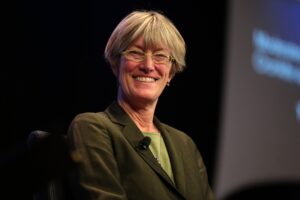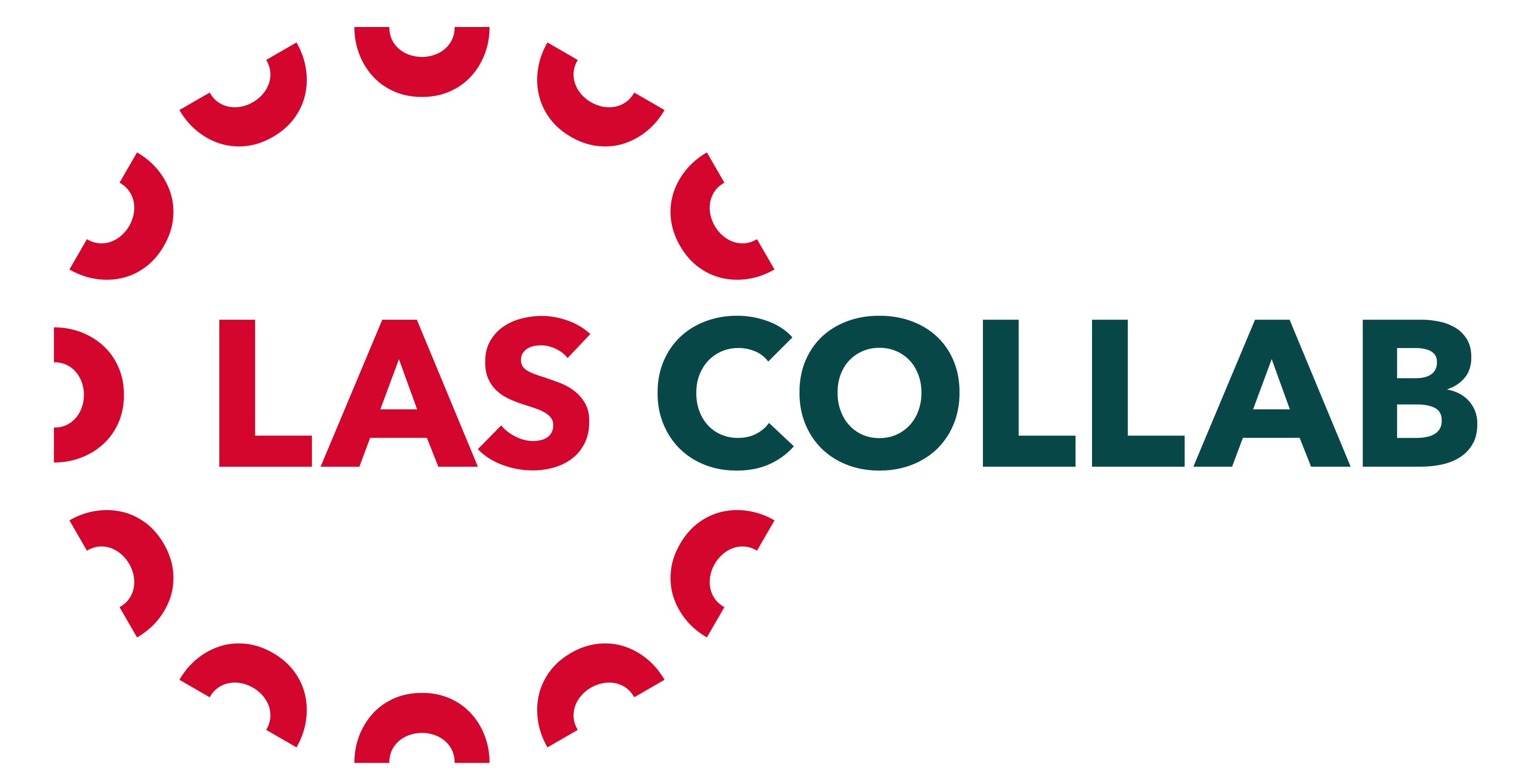Navigating the Digital Future: Allison Stanger on Education and the Digital Humanism Initiative

Allison Stanger, political scientist and Professor of International Politics and Economics at Middlebury College, Vermont, in the US, recently facilitated a Liberal Arts and Sciences Collaborative (LAS Collab) discussion on digital humanism in liberal arts and sciences education. Stanger’s research examines the relationship between technology, law, politics, and human values and she has been one of the leaders of the Digital Humanism Initiative, which addresses the complex relationship between humans and digital technology.
Digital humanism emphasizes the critical role of human values, ethics, and interests in the development and application of digital technologies. It advocates for technology to be designed and deployed in ways that respect human dignity, freedom, and democracy, rather than serving economic or technical efficiency.
Throughout the discussion, Stanger explained that the digital humanism community focuses on the growing impact of digital technologies on all aspects of human life, including work, privacy, communication, and governance. It recognizes the potential of digital technologies to enhance human capabilities and address global challenges, but is critical of the risk of surveillance, manipulation, and inequality that can arise from unchecked technological advancement. The movement calls for a more inclusive and participatory approach to technology development, where the needs and rights of individuals and communities are prioritized. “In short, the core value of digital humanism is that every human being is treated as precious and worthy of respect,” said Stanger.
Stanger has contributed to The Vienna Manifesto on Digital Humanism, a useful orientation to the initiative that ensures that technology serves humans rather than the other way around. While digital humanism has become embedded in the legislature and regulations of some European nations, Stanger noted that the US lags behind because there are fears led by big tech companies that regulations could stifle innovation. “If we’re not careful, we’re going to monetize knowledge. Privacy is going to become a luxury good, which is already happening. And if we allow these things to fully happen then we are not going to be able to have a functioning democracy,” Stanger warned.
Stanger also discussed the growing presence of generative artificial intelligence, most commonly via ChatGPT, in society and on campuses. In Stanger’s view, a major concern with generative AI is that it has introduced the potential for automated disinformation, with many sounding the alarm but few doing anything to address it. Generative AI is the first technology in human history whose creators do not know how the technology works. As Stanger notes, the creators of ChatGPT built it through a process of deep learning and stochastic processes but cannot explain why it produces what it does, which means that they cannot predict what it might do as it is scaled up.
Audience members commented on the risk that generative AI might further reproduce hegemonic narratives because the data it has been trained on overwhelmingly originates in the Global North. Stanger acknowledged there is indeed a danger that AI might reify the existing power structure but that there are ways to push generative AI and other digital technologies in a more inclusive direction.
“There’s a whole movement for digital decolonization that is really important to keep in mind,” remarked Stanger. “These large tech companies can have a hold on other countries, and if we think we have problems with them in the United States, such as with social media, then it’s ten times as worse in a country like India or Brazil where internet infrastructure can be controlled.”
For students to be conscientious users of technologies such as ChatGPT, Stanger argued that they must have some idea about how the technologies work and must confirm information sources. “It’s not enough to say that we need students to become digitally literate. We need to educate them to be digitally competent, because if you don’t know how the technology works…then you are going to be all too easily manipulated by the technology,” Stanger observed.
Stanger explained that she mandates her students cite within everything they write, even if it is informal writing. This may come across as pedantic, but it holds them accountable and teaches them the importance of being attentive to the origins of the information they are using, which can root out disinformation and fake news.
Stanger concluded by highlighting the importance of curiosity, describing liberal arts and sciences education as a space to question, confront, and investigate. Digital humanism can provide a means of engagement, allowing users to reassess the presence of digital technologies in their lives and the wider world. “Education is about challenging unidentified assumptions that we aren’t even aware we are making,” said Stanger. “A lot of my students do end up having epiphanies about their relationships to technology. Many often change their views.”
